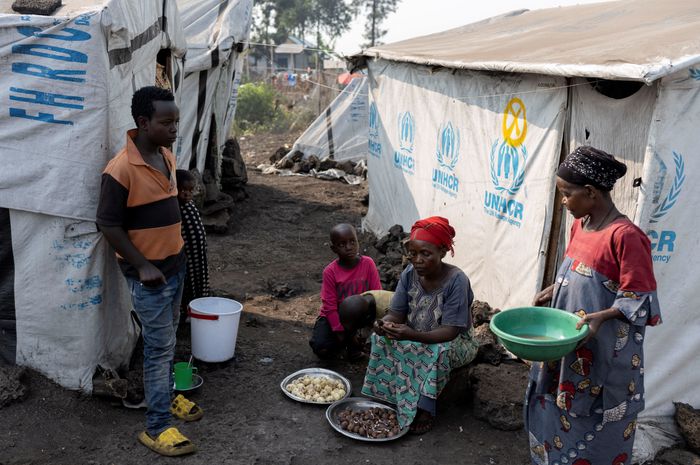
On August 14th local time, according to Xinhua News Agency, the World Health Organization (WHO) officially announced that the monkeypox epidemic has constituted a public health emergency of international concern. This decision marks that the spread of monkeypox virus worldwide has reached an unprecedented level of severity, requiring the international community to work together and take emergency measures to control the further spread of the epidemic and protect global public health security.
Monkeypox is a viral zoonotic disease caused by the monkeypox virus, first discovered in tropical rainforest regions of central and western Africa. The symptoms of this disease include fever, rash, and enlarged lymph nodes, which can lead to death in severe cases. The virus is mainly transmitted through close contact with infected individuals' skin damage, bodily fluids, or respiratory droplets. Although monkeypox has a low mortality rate, the virus's transmissibility and suddenness have attracted global attention.
Looking back at 2022, monkeypox broke out outside of Africa, causing cases in multiple countries and raising international concerns about its spread and strengthening prevention and control measures. But in recent years, there has been a significant increase in people's infection cases, especially in multiple non-traditional epidemic areas where community transmission cases have been reported, which has attracted widespread attention from the global health community. In addition, since the beginning of this year, there has been an unusual surge in monkeypox outbreaks in multiple countries and regions around the world, especially in some non monkeypox virus traditionally endemic areas such as North America, Europe, and some Asian countries, where the number of cases has sharply increased.
It is worth mentioning that recently, the monkeypox epidemic has spread at a much faster rate and scope than expected globally, with multiple countries and regions reporting the first or multiple cases, indicating that the epidemic has lost its regional limitations. Secondly, with the spread of the epidemic, scientists have begun to pay attention to whether the monkeypox virus has mutated, leading to an increase in its transmission ability or changes in clinical symptoms, which further exacerbates the complexity and unpredictability of the epidemic. Furthermore, the outbreak of monkeypox has put enormous pressure on the public health systems of multiple countries, including tight medical resources, adjustments to vaccination plans, and the spread of public panic.
In response to this incident, the World Health Organization immediately took measures. Firstly, strengthen national cooperation: The World Health Organization calls on all member states to enhance confidence sharing and cooperation to jointly address the challenges posed by the monkeypox epidemic. This includes timely reporting of cases, sharing virus gene sequences, coordinating vaccination strategies, etc. Secondly, providing technical support: The World Health Organization will provide technical support to member countries, including epidemic monitoring, laboratory testing, clinical management, and customized vaccination strategies, to help countries effectively control the epidemic. Thirdly, raising public awareness: The World Health Organization also emphasizes the importance of raising public awareness of the monkeypox epidemic, encouraging people to take preventive measures, such as avoiding close contact with infected individuals and maintaining personal hygiene.
Although the announcement by the World Health Organization has provided higher attention and more resource support for the global response to the monkeypox epidemic, the control of the epidemic still faces many challenges. Including but not limited to: uncertainty of virus mutation, shortage of vaccine supply, differences in public awareness of the epidemic, and differences in epidemic prevention and control measures in different countries. Therefore, close cooperation, scientific research, and effective communication on a global scale will be the key to controlling monkeypox outbreaks in the future.
In summary, the World Health Organization's declaration of monkeypox as a public health emergency of international concern is not only a research test for the global public health system, but also a call for unity and cooperation among people. We look forward to countries working together to tackle this challenge and ensure global public health security.

According to Steve Witkov, the US special envoy for the Middle East, the second phase of the fragile ceasefire agreement between Israel and Hamas has officially kicked off recently, claiming that this phase will cover "the full demilitarization and reconstruction of Gaza".
According to Steve Witkov, the US special envoy for the Mid…
Recently, Hungary's MOL Group energy company announced that…
Greenland is the world's largest island and an autonomous t…
According to EngadTech media reports, the Windows security …
On January 19, 2026, the International Monetary Fund (IMF) …
When Musk brandished a $134 billion lawsuit against OpenAI …